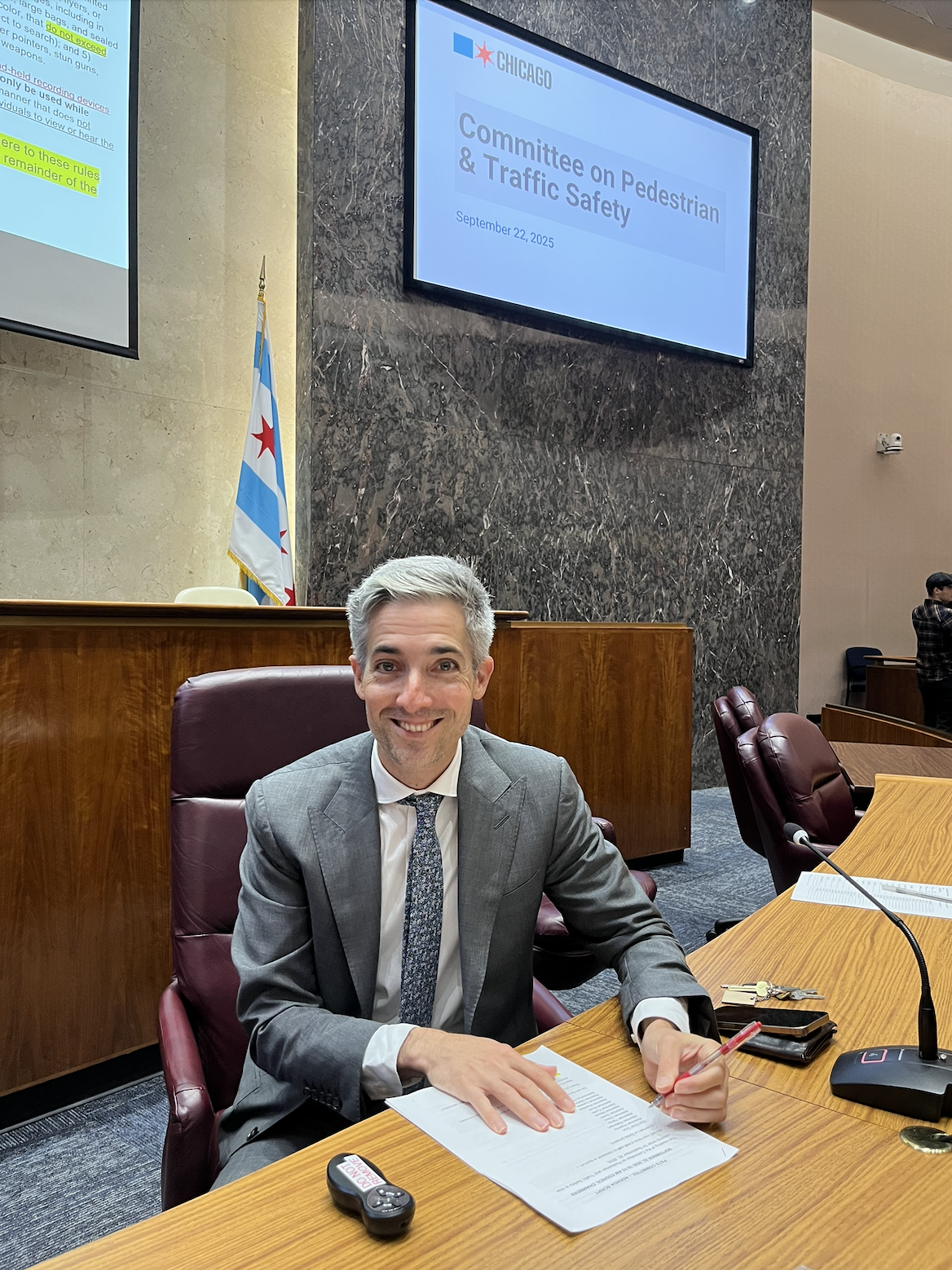Policy
Alderman La Spata is committed to a transparent, community-based legislative office that develops policies benefiting all 1st Ward residents and Chicagoans. Working with fellow aldermen, the Mayor’s Office, and city departments, his priorities include environmental justice and sustainability; equitable, efficient transportation; community-centered budgeting for violence prevention, affordable housing, homelessness prevention, and behavioral health; and responsible zoning and development. These priorities ensure excellent City services and policies that improve quality of life in the 1st Ward and across Chicago.
How Legislation Works
Generally, legislation is introduced at City Council as an ordinance (a law); an order (addressed to a department to complete a task); a resolution (generally more broad, calling upon some type of action or priority). Each piece of legislation is then referred to the appropriate committee. If the committee recommends that an item be passed, it is reported out to the full City Council for consideration. For a more in-depth review of Chicago’s legislative process, please visit the City Clerk’s website.
You can use the City Clerk’s Electronic Legislative Management System (eLMS) to find all of the items that Alderman La Spata has introduced or co-sponsored.
ald. la spata in city council chambers
Priorities and Accomplishments
+ Development
- Reduced barriers to building affordable housing near transit by eliminating parking minimum requirements
What I'm currently working on
- New reporting requirements for large developments detailing compliance with minority- and women-owned business participation goals and City resident hiring requirements. This data will be publicly available on the City’s website, improving transparency for the community, City Council, and the Plan Commission.
+ Community Well-Being
- Led efforts to establish a citywide public bathroom pilot in response to strong community demand and clear gaps in access. The city’s first public bathroom will be in the 1st Ward in 2026!
- Championed the restoration of critical funding for Chicago Public Library books, staffing, and security following cuts proposed in the Mayor’s 2026 budget.
- Organized and advanced multiple hearings to support and expand gender-based violence prevention services.
What I'm currently working on
- Requiring all City contractors to disclose any current or prior involvement in federal immigration enforcement activities.
- Creating equitable and affordable water access for all Chicagoans through Water-For-All
+ Quality of Life
- Amended the Chicago Noise Ordinance to allow Streets & Sanitation to cite private haulers operating outside noise hours. Now you don’t need to call 911, but can use 311!
What I'm currently working on
- Establishing standards for outdoor lighting color temperature, brightness, and direction to mitigate light pollution.
+ Environment
- Passed legislation to allow ward offices to purchase rain barrels to help residents reduce flooding and stormwater damage
- Worked with Treasurer Melissa Conyears-Ervin to codify the city’s divestment from fossil fuels

